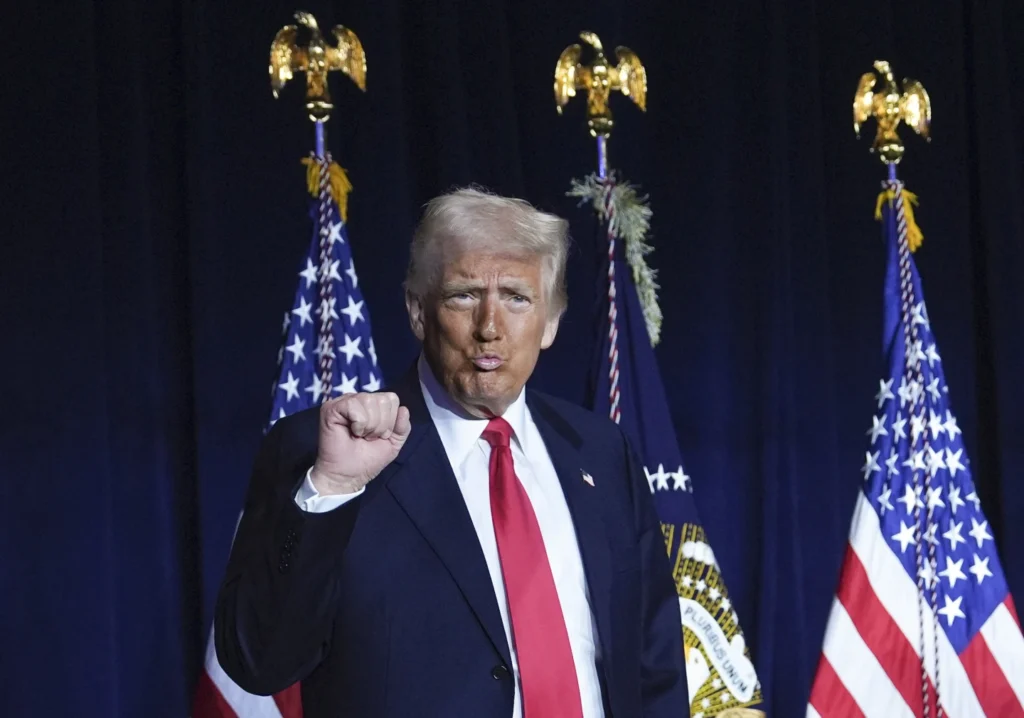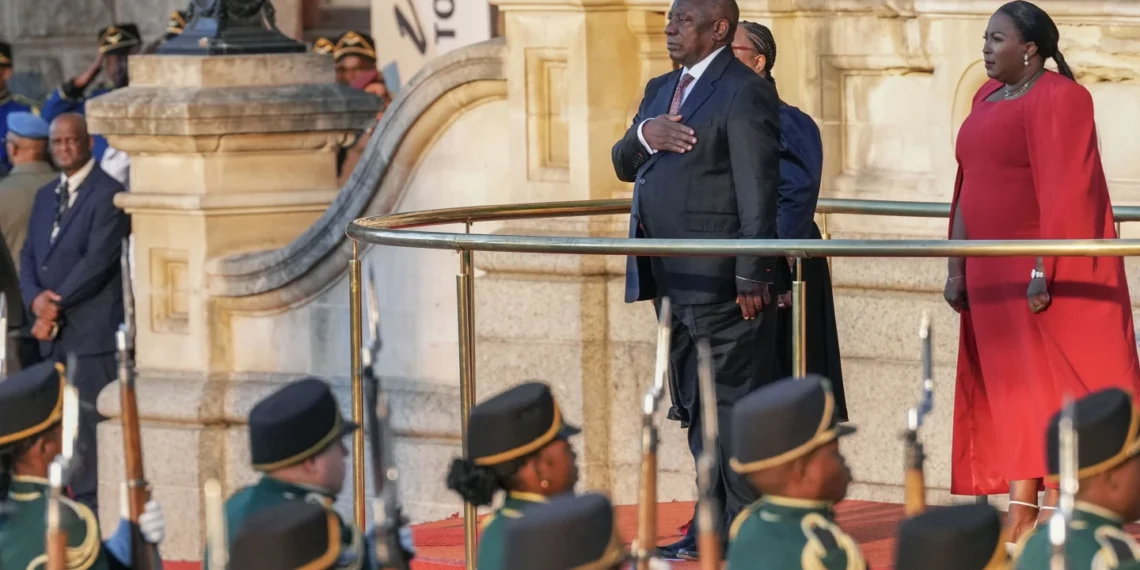South Africa’s land reform is again in the limelight with President Cyril Ramaphosa firmly defending his country’s sovereignty, vowing that South Africa will not succumb to external pressure.
His remarks come in response to growing criticism from the United States, particularly from President Donald Trump and Secretary of State Marco Rubio.
During his State of the Nation address in Cape Town, Ramaphosa addressed the shifting global landscape, emphasizing South Africa’s resilience in the face of mounting international scrutiny.
“We are witnessing the rise of nationalism, protectionism, the pursuit of narrow interests, and the decline of common cause. This is the world that we as South Africa, a developing economy, must now navigate, but we are not daunted.”
President Cyril Ramaphosa
He reiterated South Africa’s commitment to standing firm against external pressure, declaring, “We will not be deterred.”
“We are a resilient people. We will not be bullied. We will stand together as a united nation and we will speak with one voice in defense of our national interests, our sovereignty, and our constitutional democracy.”
President Cyril Ramaphosa
His statement was met with applause from certain members of parliament.
Diplomatic Tensions Rise Between South Africa and US
Although Ramaphosa did not mention Trump by name, his remarks come after the US president’s recent accusations against the South African government.
Trump claimed on his Truth Social platform that South Africa was “confiscating land, and treating certain classes of people VERY BADLY.” He further alleged that the country was committing “massive Human Rights VIOLATION,” though he did not provide specifics.

These comments have further strained diplomatic relations between Washington and Pretoria.
The situation escalated after US Secretary of State Marco Rubio announced that he would not attend the upcoming G20 summit in Johannesburg, citing concerns over South Africa’s policies.“South Africa is doing very bad things. Expropriating private property. Using G20 to promote ‘solidarity, equality, & sustainability,’” Rubio posted on X, adding, “In other words: DEI and climate change.”
Rubio’s reference to Diversity, Equity, and Inclusion (DEI) aligns with Trump’s continued opposition to such programs since returning to the White House for his second term. The decision to withdraw from the G20 meeting marks a significant diplomatic snub amid increasing tensions.
South Africa’s Land Reform Policy Under Fire
The controversy stems from South Africa’s recently enacted Expropriation Bill, which allows for the government to offer “nil compensation” for land expropriated in the public interest under certain conditions. Trump has condemned the law, claiming it amounts to government confiscation of private property.
In response, South Africa’s Foreign Minister Ronald Lamola refuted these allegations, stressing that the policy is lawful and comparable to eminent domain laws in the United States.
“There is no arbitrary dispossession of land/private property with South Africa’s new land reform law,” Lamola stated. “This law is similar to the Eminent Domain laws.”
Eminent domain, widely used in the US and other nations, grants governments the right to acquire private property for public use, often with compensation. The South African government argues that its approach mirrors international standards while addressing historic injustices.
Land ownership remains a deeply sensitive issue in South Africa, where apartheid-era policies led to the forced removal of Black families from their land. The government now faces the complex task of addressing past injustices while respecting property rights in a democratic framework.
Despite the international backlash, Ramaphosa has remained steadfast, asserting that South Africa will make decisions based on its national interests rather than external pressure.
“We will not be bullied,” he emphasized, reinforcing his administration’s stance on land reform and economic sovereignty.
As tensions between Pretoria and Washington escalate, South Africa’s leadership continues to defend its policies, determined to navigate the diplomatic storm while maintaining its commitment to constitutional democracy and economic reform.
READ ALSO: President Mahama Vows Transformation, Accountability in Central Region





















